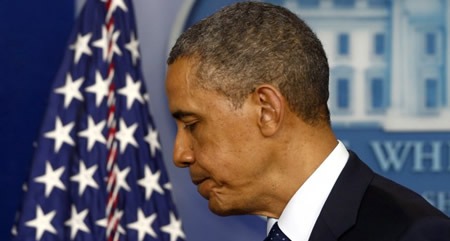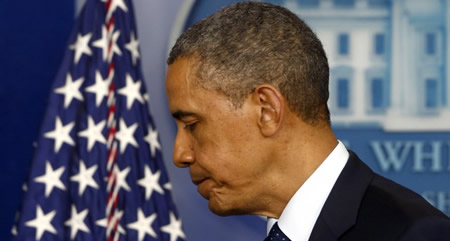
Obama in Miami: An ambivalent presence
The ultraconservative Batistans in Miami (forgive the redundancy) are dissatisfied with Obama.
At the receptions they gave him last Friday, they did not hear the “Viva Cuba libre!” that other U.S. presidents have shouted during visits to South Florida, or a promise to send the Marines to invade Cuba.
 Nor did Obama say that he would squeeze the Cuban economy until it “screamed,” as Nixon threatened in 1970 referring to the Chilean economy.
Nor did Obama say that he would squeeze the Cuban economy until it “screamed,” as Nixon threatened in 1970 referring to the Chilean economy.
Instead, Obama acknowledged that changes have occurred in Cuba and that the United States must continue to update its policies toward Havana. In addition, he said that those policies – imposed half a century ago – no longer have meaning in today’s world.
The words that the president spoke while raising money for the Democratic Party were tepid. And that’s what disappointed and annoyed his hosts in the “historic exile,” many of whom are already grumbling.
Between the lines, Obama’s message was that “the Cuban problem must be solved by the Cubans, not by anyone else.”
Some aspects of Obama’s visit to Miami have caught my attention and give me a clue as to why the “ultras” are worried.
1. The news reports don’t contain direct quotes from Obama. Perhaps at the request of the White House, the president’s statements have been paraphrased by the news agencies but not published as direct quotes. The paraphrases most often circulated were delivered by Obama’s hosts and oppositionists present at the reception.
This allows Obama to deny his words in the future, or question their accuracy, something that the CIA in the 1960s named “plausible deniability.”
2. The White House has not given much publicity to the president’s statements in Miami. I write this on Sunday the 10th, after ascertaining that the WH’s website does not contain a transcriptions of his words there, although it does carry transcriptions of other statements Obama made in other cities over the weekend. It’s as if he did not want to be quoted literally this time.
3. Nor has the White House distributed photographs of his meeting with leaders of the Bastistan community or oppositionists from Cuba. Usually, hours after a presidential event, the WH’s Public Relations office sends out a truckload of photos and videos to newspapers, news agencies and the audiovisual media. The only photos I have seen so far were handed out by Radio-TV Martí and individuals invited to the reception.
4. Speaking of pictures, I have not seen any photos of Obama at the Versailles restaurant, drinking Cuban coffee or eating a Cuban pastry, under a Cuban straw hat. Maybe he doesn’t want to be too closely identified with his hosts. And that’s what’s troubling them.
True, the White House could distribute transcriptions and photos in the future, but they would no longer have an immediate impact. They would be what journalists call “stale news.”
What Batistans fear is that Obama – now into his second and final term – will take bold steps to improve Washington-Havana relations and turn his back on them, for the benefit of the people of Cuba.
Sometimes, appearances are deceiving.
Emilio Paz is a journalist who, though not a Cuban, is a keen observer of the situation in Cuba.

